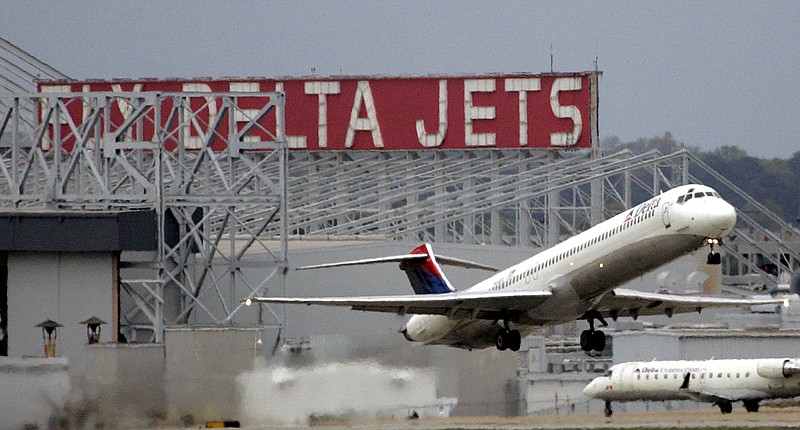ATLANTA - Delta Air Lines plans to hire 500 aviation maintenance technicians this year, during a period when aircraft mechanics are in high demand.
Atlanta-based Delta runs the largest airline maintenance, repair and overhaul (MRO) operation in North America, and expects to double the size of its TechOps business over the next five years to $2 billion in revenue.
Many of the job openings will be at its largest hub in Atlanta, where Delta has its largest TechOps facilities.
Delta CEO Ed Bastian disclosed the hiring plans for the airline's expanding maintenance business at the MRO Americas conference in Atlanta this month.
The airline expects to grow its maintenance business through agreements such as one designating Delta as an authorized Rolls-Royce aircraft engine maintenance center and in expanded facilities including a new engine shop and massive new engine test cell.
But aircraft maintenance companies around the country are struggling to motivate enough young people to enter the profession to fill their pipeline of openings expected in the years and decades to come.
One big motivator: Delta says its aircraft mechanics can make a salary of as much as $100,000 a year. The job calls for an FAA airframe and power plant license, but doesn't require a four-year college degree.
Working for an airline can come with travel benefits. However, being an aircraft mechanic is not a typical 9-to-5 office job where working from home is an option.
Jack Arehart, Delta TechOps president of MRO Services, said Delta has added ping pong and foosball tables for workers.
But when younger workers enter the aircraft mechanic workforce, they are still junior to others, and that has real-life ramifications.
At an airline like Delta that operates 24 hours a day and seven days a week, new mechanics are "going to work on the midnight shift and they're not going to have weekends off," Arehart said. "We still have a veteran workforce we have to take care of, and they're going to command their seniority, their weekends off."
More than 30 percent of aviation maintenance technicians (AMTs) at Delta TechOps are forecast to retire over the next decade. To prepare to replace them and expand, Delta works with the U.S. military and regional airlines and has partnered with nearly 50 aviation maintenance schools.
Through the partnerships with the AMT schools, Delta offers tours, job shadowing and training for instructors, and donates parts, engines and airframes for students to practice working on jet aircraft components.
Delta said it also partnered with the state of Georgia to include AMT training in scholarship programs.
Robert Ireland, managing director of engineering and maintenance at industry group Airlines for America, said the aircraft mechanics the industry will need to fill its ranks in the future are in fifth grade today.
"We have to grow from the bottom," Ireland said. "The technician population needs to be cultivated at all ages to ensure we don't hit that cliff."
